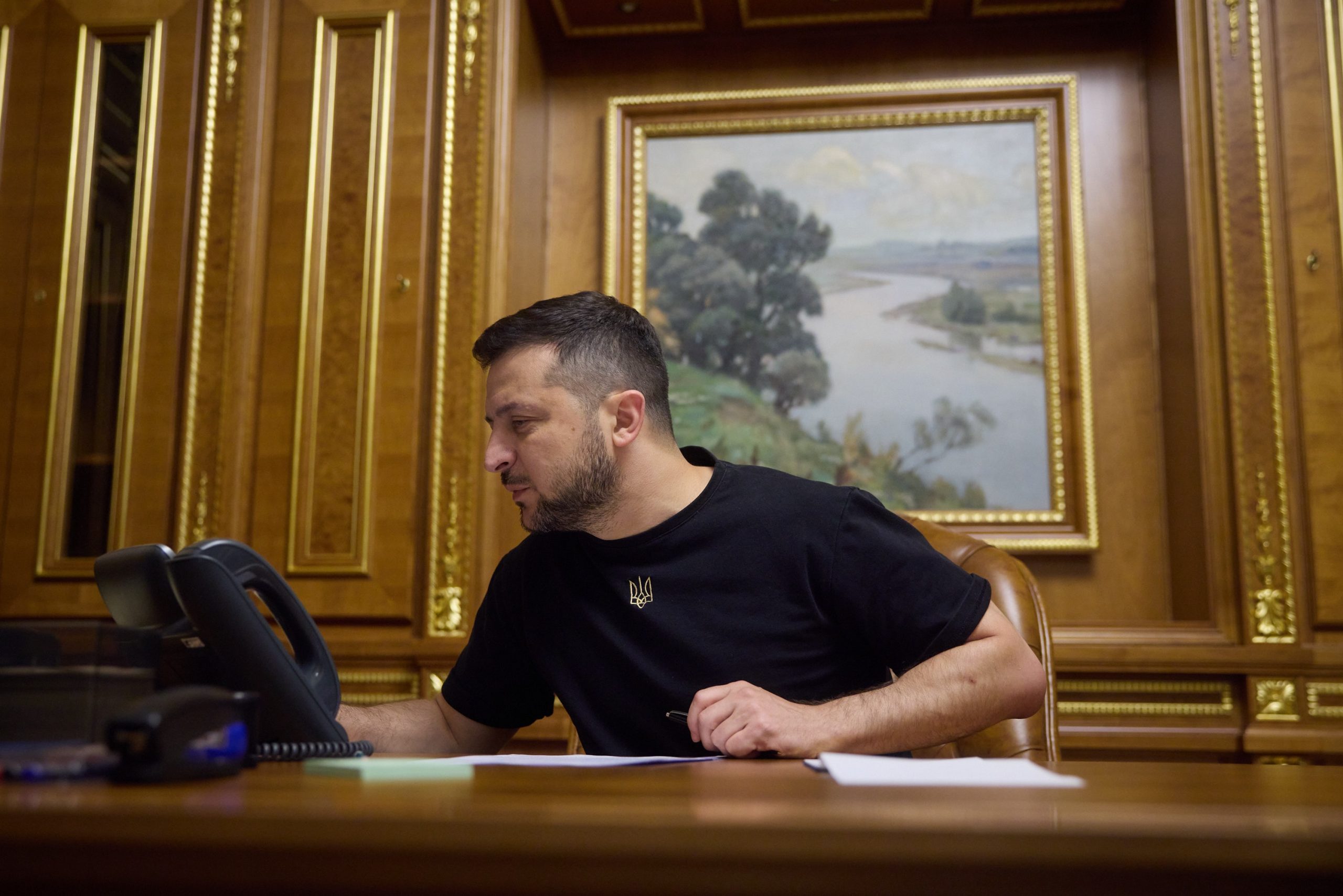News
Ukraine war: corruption scandals and high-level rifts could become an existential threat as Kyiv asks for more military aid

Under pressure: with things on the battlefield not going well, the last thing Volodymyr Zelensky needs is a corruption scandal in the military. (File Photo: @ZelenskyyUa/Twitter)
The latest revelations about corruption in Ukraine tell a complex story. A scandal has engulfed the Ukrainian ministry of defence, where 100,000 mortar shells worth about $40m (£31m) were paid for but never delivered. But within days of this story emerging, Ukraine achieved its best-ever ranking in the annual corruption perceptions index complied by Transparency International (TI).
The improved standing in the TI index demonstrates that efforts by Ukrainian president Volodymyr Zelensky to crack down on corruption – including in his inner circle – have led to some improvements. On the other hand, the ammunition scandal is a clear indication of how pervasive and normalised corruption has become when senior defence officials and managers of an arms supplier collude to deprive their country of vital military supplies at a time when their country is facing an existential crisis.
Corruption has long been a problem in Ukraine. But over the past ten years, since annual corruption perceptions scores have been collated, the country has steadily improved. Yet, with the exception of Russia and Azerbaijan, no other European country is perceived as more corrupt than Ukraine.
Ukraine has survived two years of bitter conflict, despite this endemic corruption, and has showed remarkable resilience in the face of Russia’s aggression. But these high-profile scandals – and the general perception that Ukraine still battles everyday corruption – have become more existential threats at a time when Ukraine’s survival has, to a large extent, become dependent on the continued supply of western military and financial aid.
Sceptics in the EU – above all Hungary and Slovakia, but also influential right-wing populists currently in opposition like Germany’s AfD – have used undeniable corruption as one argument against further aid for Ukraine. Similarly, in the United States, Republicans have argued that a lack of oversight could mean that US aid is diverted to line the pockets of corrupt officials.
As this debate becomes more heated and increasingly entangled with election campaigns for the European parliament and the US presidency, any alleged evidence of the misuse of funds makes it harder for Kyiv’s international supporters to win the argument for continued support. Moreover, it becomes less attractive to even make the argument.
This is likely to feed further into the sense of defeatism that has surrounded public debates on Ukraine since Ukraine’s performance on the battlefield in 2023 failed to live up to either Kyiv’s aspirations or the west’s expectations.
Zelensky’s vulnerabilities
Beyond the precariousness of continued western support, Zelensky has also become more vulnerably domestically. Repeated high-profile corruption scandals undermine one of his key election promises back in 2019 that he would root out graft.
While the Ukrainian president has strengthened anti-corruption agencies and been open about the problems Ukraine continues to face, his continued crackdown can now also be framed as politically motivated by his domestic detractors. This will only serve to deepen and entrench political divides in Ukraine. And that’s the last thing Zelensky needs at a time when there is already a highly divisive debate over war strategy and when disagreements between the country’s political and military leaderships have become increasingly public.
On that front, it remains unclear whether Zelensky will replace his commander-in-chief, General Valeriy Zaluzhny, as has been widely reported, or does not have the power to do so. The Ukrainian president is said to have offered Zaluzhny a new role as a defence adviser, which the military chief is understood to have refused. Relations between the two have soured in recent months, partly as a result of the failure of Ukraine’s 2023 counteroffensive to score any significant battlefield successes.
The president castigated his top general in November 2023 for publicly saying that the war was in a “stalemate”. There has also been speculation that Zaluzhny might enter politics and stand against Zelensky for the presidency. A poll in December found that while 62% of Ukrainians said they trusted Zelensky, 88% said they trusted Zaluzhny.
Taken together, the corruption scandal and the reported rift at the top of Ukraine’s power structure will do nothing to restore or sustain western confidence about whether Ukraine has a credible pathway to avoiding defeat, let alone to achieving victory. Without such confidence, more aid looks increasingly doubtful.
Without real headway being made in the fight against corruption, the broadly pro-western and pro-European constituency from which Zelensky draws most of his support is also likely to weaken. A European future will look less attractive to people who see western support as simply propping up a corrupt elite.
And even if, as is likely, support for European and transatlantic integration will remain high, Zelensky may no longer be seen as its only or most likely champion.
Corruption, therefore, remains central to Ukraine’s existential crisis. It is not the only problem that the country faces, and objectively it may not even be the biggest one. What makes it so critical for Ukraine to fight corruption more effectively, and to be seen to do so, is that corruption and the perception of corruption exacerbates other problems and undermines critical domestic and western support.
On its own hence, corruption is unlikely to break Ukraine. But in the midst of a war, it may be the final straw that breaks the country – because of the knock-on effects at home and abroad.![]()
Stefan Wolff, Professor of International Security, University of Birmingham and Tetyana Malyarenko, Professor of International Relations, Jean Monnet Professor of European Security, National University Odesa Law Academy
This article is republished from The Conversation under a Creative Commons license. Read the original article.





















